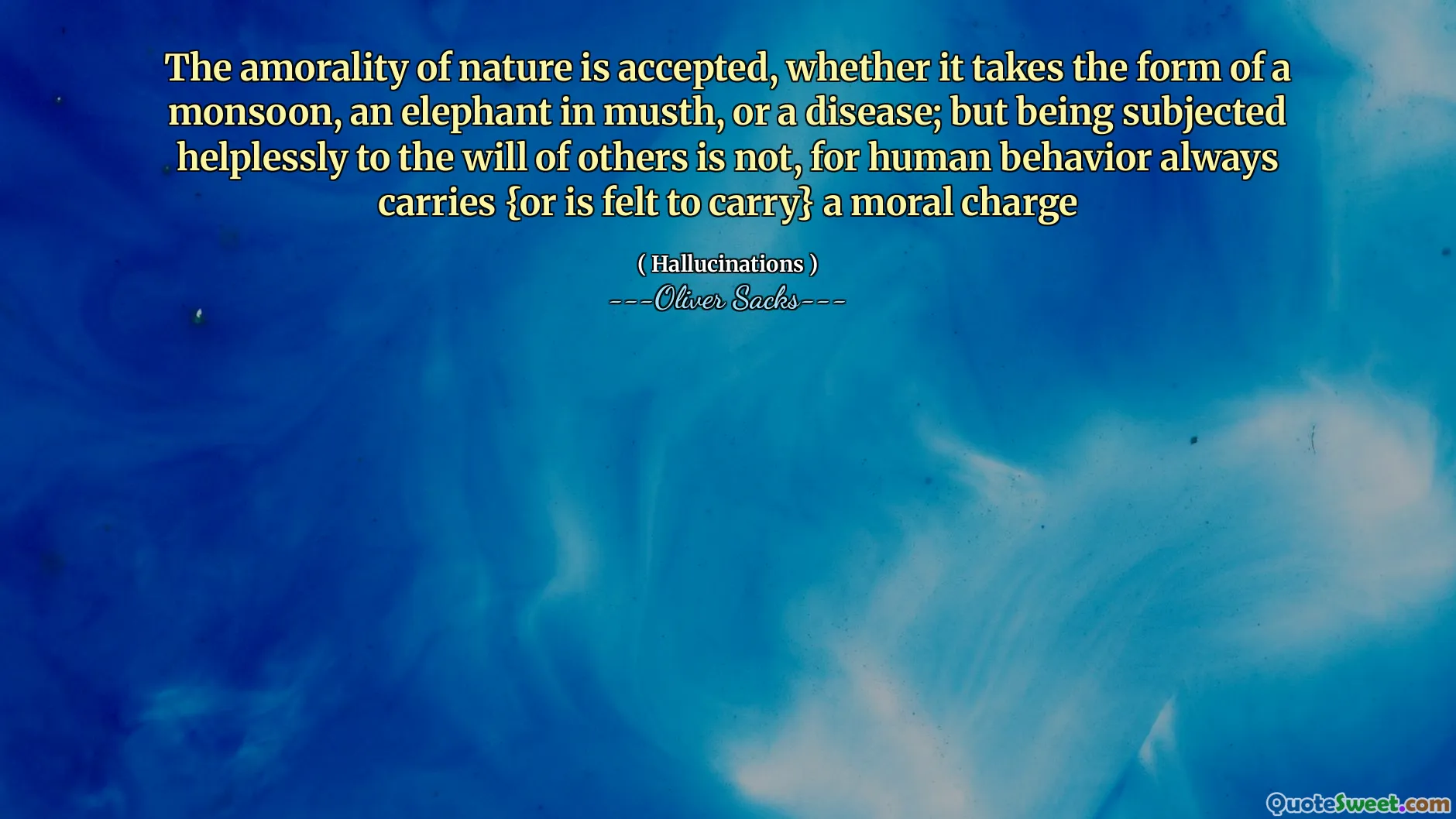
The amorality of nature is accepted, whether it takes the form of a monsoon, an elephant in musth, or a disease; but being subjected helplessly to the will of others is not, for human behavior always carries {or is felt to carry} a moral charge
This poignant observation reveals a fascinating aspect of human psychology and societal values. Nature’s indifferent phenomena, such as the relentless force of a monsoon, the aggressive behavior of an elephant in musth, or the outbreak of a disease, are universally accepted as amoral—they exist and act without intent or consideration for morality. They possess neither good nor evil; they simply are. This acceptance highlights an inherent recognition that natural occurrences do not possess consciousness or ethical frameworks.
In contrast, when humans find themselves subject to the actions or wills of others, there is an immediate, almost visceral, reaction against the loss of agency. Human behavior is intrinsically tied to moral judgment; we instinctively interpret actions between people through ethical lenses, attributing responsibility, blame, or virtue. This moral charge reflects our capacity for consciousness and intention, preserving the framework by which society functions—expecting accountability and condemning abuse of power.
Oliver Sacks’ highlighting of this dichotomy invites reflection on how we compartmentalize experiences of suffering or harm. Harm caused by nature is tragedy, but harm caused by another person feels inherently wrong because it implies a failure of moral duty or justice. It raises profound questions about free will, power dynamics, and how morality is constructed and enforced in human interactions. Moreover, it challenges us to consider empathy and understanding when confronted with these different sources of suffering: why we accept some with stoic resignation and others with moral outrage.
Ultimately, this quote serves as a reminder that our sense of justice and morality is deeply tied to human agency, shaping not only interpersonal relationships but also our worldview and ethical frameworks.






